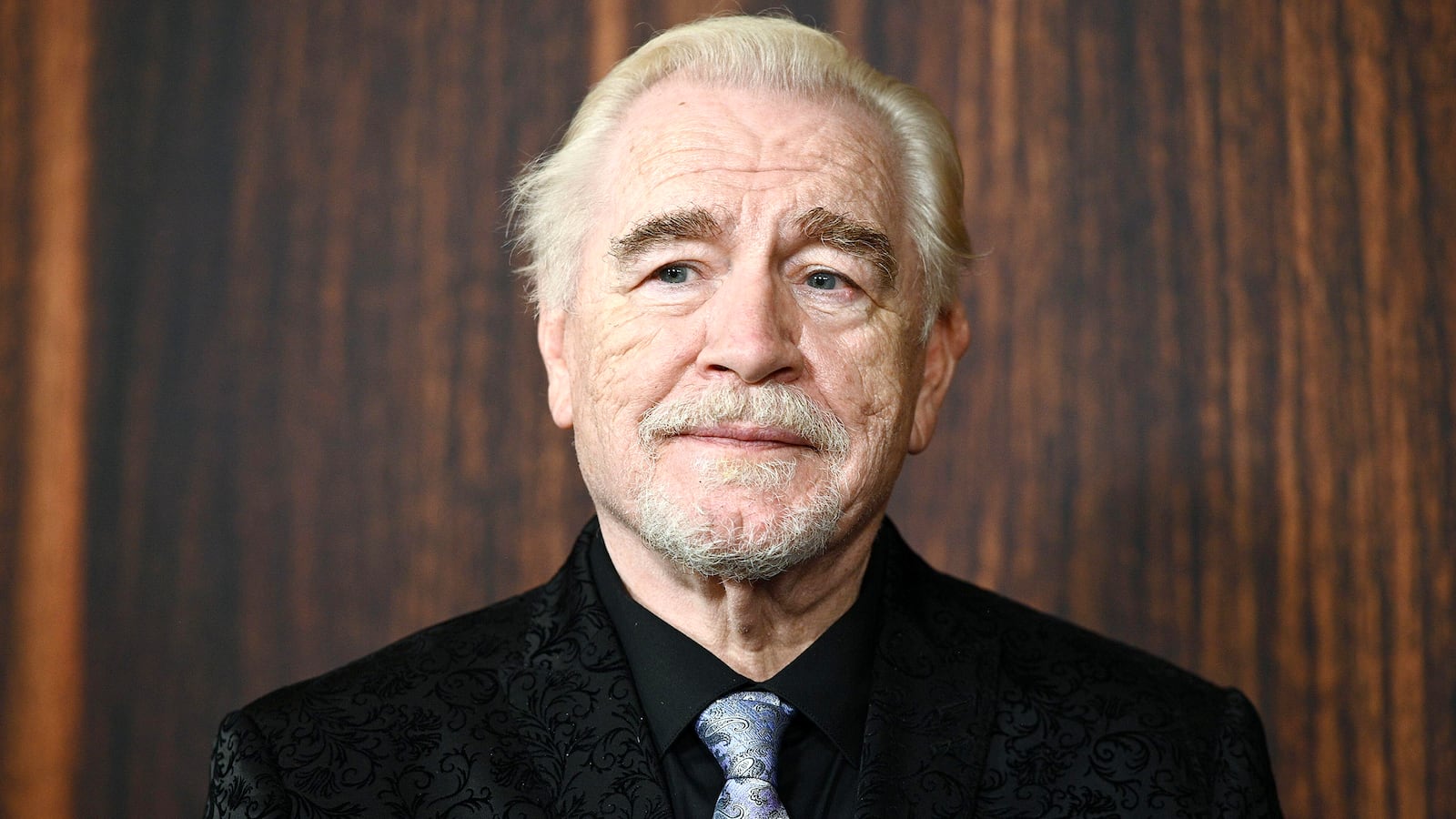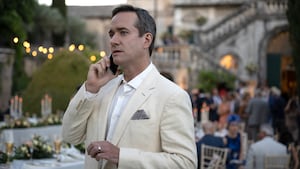Years before Brian Cox spat countless fuck offs at his scheming, sniveling children as Succession’s domineering patriarch Logan Roy, unbeknownst to him, he was actually prepping himself for the role of a lifetime.
The critically acclaimed HBO dark comedy has evoked comparisons to the William Shakespeare tragedy King Lear, a play the 75-year-old Cox is very familiar with, having played the all-consuming role of the aging mad king in the ’90s.
But Logan Roy is a beast of his own: ruthless, conniving, instinctive, and almost unreadable, as he puts his children through the longest audition process ever, selectively bestowing favor on one child only to kick down another, as he makes them fight over who will be handed the keys to his self-made kingdom, Waystar Royco.
The plotting and backstabbing makes for a fascinating and hilarious watch for viewers, who try to get inside Logan’s mind to glean who he’s leaning toward. But even Cox admits in his upcoming memoir Putting the Rabbit in the Hat, out on Jan. 18, he’s not exactly sure who that is either. (Although Cox does confess that out-of-touch Connor Roy, played by Alan Ruck, doesn’t seem to stand a chance.)
But he does believe that Logan’s callous only daughter Shiv (Sarah Snook) just might be Logan’s equal. Beat-down and dejected Kendall (Jeremy Strong) is simply “a monster of Logan’s own making,” and neurotic slimeball Roman (Kieran Culkin) could be the dark horse of the race.
Cox shares a good amount of Succession behind-the-scenes tidbits in his book. For starters, while explaining his general disdain for being given notes from directors, most of whom he “considers pests,” Cox recalls how during filming of the third season, some directors had a habit of giving the well-established cast some needless notes.
He recalls how Culkin was apparently told by a director to “slow down.”
“Now this is an actor who’s calibrated the patterns of his character’s delivery over the course of two previous seasons,” Cox writes. “In that sense at least, the work is done, and unless the writing calls for it, he won’t be changing anytime soon. He’s not going to suddenly slow down just because you’ve given him a note. But that’s directors for you.”
In the lead-up to the finale, there was much talk circling both the character Kendall and the actor behind him, Jeremy Strong. At the close of the penultimate episode, showrunners dangled the question if Kendall had died.
Estranged from his family and with one of his life’s biggest mistakes just thrown back in his face, Kendall’s fate seemed uncertain after he passed out in a pool on a floatie, his half-empty beer slowly sinking to the bottom of the pool as a stream of bubbles came from his partially submerged head.
The shot sent viewers into a tizzy, and while Kendall managed to be just fine, HBO knew what it was doing with the cliffhanger. The next morning, answer-hungry viewers were greeted with a perfectly-timed New Yorker profile of Strong that kicked off a conversation of its own.
Journalist Michael Schulman expertly explored what makes Strong tick and discovered that his intense, immersive acting method might not be everyone’s cup of tea.
“To me, the stakes are life and death,” Strong is quoted, describing how earnest he is about playing Kendall, even injuring himself twice in his pursuit of authenticity. “I take him as seriously as I take my own life.”
When Cox is asked about Strong’s method in the article, he’s diplomatic if not slightly concerned about his process, although he admits Strong’s performances are fantastic.
“I just worry about what he does to himself; I worry about the crises he puts himself through in order to prepare,” Cox said. And elsewhere, “I just feel that he just has to be kinder to himself, and therefore has to be a bit kinder to everybody else.”
Cox touches upon Strong’s method in his own memoir, repeating the same anecdote that he shared with Schulman about the filming of Marathon Man starring Sir Laurence Olivier, who was in his late 60s at the time, and Dustin Hoffman, who was in his 30s.
Unimpressed with Hoffman’s approach of staying in character off-set, which included frequent partying and little sleep, a frustrated Oliver is said to have told his younger counterpart, “My dear boy, why don’t you try acting?”
Returning to Strong and Succession, Cox asks, “Who am I to judge?” about his co-star’s method.
“I’ll put up with anything as long as the result is good,” he writes. “I don’t always agree with him regarding the way he prepares or the way he does things, but his ‘process’ is his business. It’s nothing to do with me; as long as it never gets in the way when we actually play the scene then that’s fine, and, as it happens, it’s always great.”
With Season 4 confirmed and on the horizon, it’s been a long road for Cox, who initially believed he was only signing on for one season.

Cox was pitched on Logan dying at the end of Season 1, leaving his squabbling children fighting amongst themselves on who could carve out the biggest piece of the company pie.
But after more talks with creator Jesse Armstrong and director Adam McKay, they envisioned a different path for Logan—one where he pits his children against each other in a seemingly heartless manner in the name of teaching them lessons, whatever he thinks they may be.
As for Logan, Cox admits he finds plenty of similarities between the two—and not just because both are from Dundee, Scotland. In fact, Cox confesses that he sometimes finds putting on his Logan hat a bit too familiar.
“Sometimes it can be almost distressingly easy to put on my Logan Roy skin, but I understand why, because as well as being what it’s about—wealth, entitlement, etcetera—Succession is also about displacement,” Cox writes.
“It’s about how Logan was classically displaced, taken from his childhood home when he was very young. And you know what? I know somebody else who feels displaced, who left Scotland at a young age. Somebody else who feels a certain disgust with the rest of the human race, who feels that humanity is a failed experiment.”
“My view is that at some point very early on in his career he returned to Scotland to work at DC Thomson where he learned his trade as a local journalist but then he became this avaricious empire builder and was eventually corrupted by it.”
But regardless of Logan’s faults, Cox admits, “I just love playing him.”



